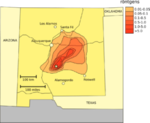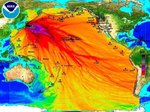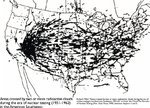Shinpachi, we didn't give a crap about saving your lives. There, do you want one of us to admit it? Nothing personal between you and me. But guess what? You didn't give a crap about saving any of our lives, all we both wanted was to win.Remember IJA held thousands of the chemical shells.
I wonder if you, or we, as postwar generation could claim humanism for enemy citizens even if they were used against the Allies.
You dropped A-bombs to save your own soldiers' lives and that was a fair decision.
Hirohito also saved Japanese lives because of his sane decision.
But I will not say that he also saved the Allied soldiers' lives as it was not our business.
Politically. Not necessarily militarily. And why the hell not? Our politicians weren't dying out there. Neither were their kids if they had anything to say about it. And they controlled the media, they controlled our mindset.
On the bomb. It was known what the radiation would do. The after-effects were known. They weren't guessed at. My aunt was a radio-biologist at Oak Ridge and a top G-rating in the AEC. This was worse than mustard-gas. We knew it, going in.
The Japanese wouldn't give up. We saw that in the island-fighting clear as a bell. It was in our strategy and tactics manuals. "Japanese prisoners" was an oxymoron. German prisoners, sure. The Japanese? Surrender? Keep dreaming.
And we'd be kicking ourselves, if we didn't use it...
Last edited:



